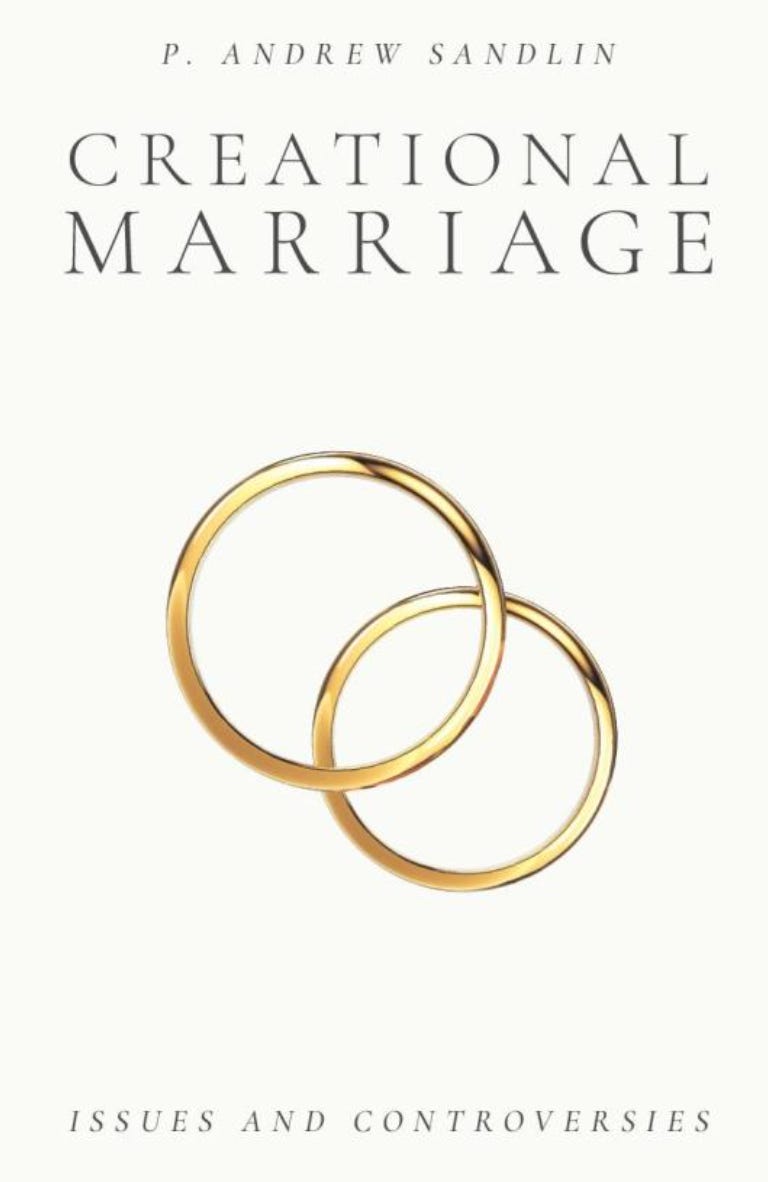
Reactionaries Are Revolutionaries Too
If the new NeoCon reactionaries get what they want, it won’t be what they claim they’re restoring. It’ll be an amalgam of an idealized conservative past and an actual revolutionary present.
Dear friends and supporters:
The terms revolution and revolutionary have become so common in our modern lexicon that they’ve lost their, well, revolutionary impact. We now hear about everything from revolutionary clothing fashions to revolutions in taco-making. Revolution was originally as astronomical term to denote the circular movement of a smaller heavenly body around a larger one: the earth makes an annual revolution around the sun. Its metaphorical usage developed as a description of swift, drastic change of a society’s basic character usually accomplished by violence. The first great sociopolitical revolution was the French, after which all subsequent revolutions (most of them Marxist) were to one degree or another patterned.
Political violence is almost as old as the Fall itself, but what makes revolutions distinctly modern is their ideological character: they’re not attempting simply to replace one political ruler with another (a fact almost as old as the state itself) but to create a drastically new kind of society fueled by dreamy imaginations of a better world. For the French it was liberty, fraternity, and equality. Earlier political usurpers like Alexander the Great and Vlad the Impaler were not especially concerned with such abstract ideological matters. Nor are all revolutions violent. In the 60s the Cultural Revolution in China was, but the Sexual Revolution in the West was not. The common factor is not violence but swift, drastic social change.
What Makes for Reactionaries
Because all revolutions, violent or not, are deeply disruptive, they always meet resistance. Some people just don’t want to change. If they think hard about the unpleasant disruption going on around them, they might become what is called reactionaries, or what Marxists call counter-revolutionaries. Reactionaries wish to restore the pre-revolutionary kind of society that has been lost or supplanted. But their desire can never be so simple.
Reactionaries may claim simply to repristinate an earlier, allegedly superior historical condition, but they often forget that they need a present ground to stand on in order to do it. They can’t simply “get back to where they once belonged” without navigating a path to get there. And that path includes accounting for the present revolutionary situation they’re reacting against and from which they must start their repristination journey. What this almost always means in practical terms is that they carry with them a part of the revolution they’re trying to combat and supplant. They can’t avoid breathing the air of the culture they want to abolish.
Many reactionaries today creditably oppose abortion, statism, Cultural Marxism, the Sexual Revolution, ideological feminism, political correctness, cancel culture, and so forth; but they don’t quite know what to do with the actual present history these and other evils have produced. Because these societal evils have created a particular kind of (bad) culture, they can’t just recover an earlier culture without accounting for how to transition the present culture to that culture. It’s impossible simply to import the past into the present, particularly since the past that reactionaries want to import usually exists only in their own minds and never actually existed in the first place.
Analysis of Reactionaries on the Right
This phenomenon has been recognized by thinkers on both the Right and Left. An interesting figure on the Right to have noted it is the Italian Christian philosopher Augusto Del Noce. I say “interesting” because Del Noce is a Roman Catholic, and conservative Roman Catholics are notorious for repristination longings — usually a return to the medieval world when the Roman Church dominated culture. Today’s political Integralist movement is an obvious example.
But Del Noce is too shrewd not to notice that recovering the past is never as simple as it appears; indeed, it’s not possible at all. In fact, while opposing revolutionary utopia, it develops a utopia all its own. He writes:
[A] reactionary is completely dissatisfied and regards the present as a state of decadence with respect to some past historical situation. Hence, he wants to go back in time, to an age when the seeds of such decadence and disintegration did not exist, or rather when they were hardly perceivable. Thus, the forms of utopia that take an archaeological form belong to reactionary thought….The mistake of reactionary thought is that it confuses the affirmation of supra-historical principles with the image of a realized historical situation, so that it ends up thinking that to affirm eternal principles one cannot admit “new problems,” problems that must be solved in relation to those principles but after having been recognized as “novel.”1
Translation: reactionaries don’t really want to recover the actual past but rather an unreal ideal past based on aversion to a very real revolutionary present. That revolutionary present creates “new problems” that a mere restoration of the past can’t account for or address. Therefore, reactionaries must bypass the present reality and try to impose on it a past unreality. This is why Del Noce later states that reaction is “utopianism shifted to the past.” If revolutionaries try to create a future utopia in the present, reactionaries try to create a past utopia in the present. They are “archaeological utopians.”
Now Available
This easy-to-understand book tackles head-on same-sex “marriage” and attraction”; female subordination in marriage; creational versus Christian marriage; complementarian and egalitarian versus Reformational marriage; the fallacy of “falling in love”; aborticide; eros in culture; the LGBT+++ agenda, the lust for singleness; the child-free life; “natural” law; and much more.
It offers nothing less than a bold, creational, Reformational view of marriage amid the present cultural chaos.
Get the book here.
Analysis of Reactionaries on the Left
A testimony from the Left on this topic is from probably the most (in)famous Leftist in history, Karl Marx. But a broken clock is right twice a day (at least a broken analog clock is), and Marx occasionally offered accurate social diagnoses even if his prescriptions were usually pernicious. In his discussion of how 19th century Germany reacted to the events in other European countries, he serves up this metaphorical aphorism:
“I may negate powdered wigs, but I am still left with unpowdered wigs.”2
The broad point he’s making is that you can’t make 19th century unpowdered wigs in reaction to 18th century powdered wigs without preserving the very reality of powdered wigs. After all, they’re unpowdered wigs. Germany can’t react against (for example) the French Revolution without allowing the French Revolution to influence its reaction. Marx is clearly operating in Hegelian categories, by which ideas are never fixed but always in flux, but he’s making the same basic point as Del Noce.
Sauron’s Ring of Power is just too precious to part with. One thing that makes conservatives what they are is their awareness of the danger of that Ring, an unwillingness to wear it even for the noblest of purposes.
In assessing this historical problem, Marx introduced his concept of the negation of the negation: You don’t get rid of the original problem by negating it, because the negation always includes the thing being negated. The key is to negate the negation. Now, if you scratch your forward-thinking head wondering if even that negation of the negation carries the previous negation, you’re thinking like a good Hegelian — ideas are never absolute; they’re always evolving into their opposite. This is the conundrum you get yourself into when you buy stock in the negation business.
A final testimony comes from San Franciscan longshoreman philosopher Eric Hoffer, who was known as a man neither of the Left or Right. He wrote in his best known book The True Believer (1951):
In reality the boundary line between radical [revolutionary] and reactionary is not always distinct. The reactionary manifests radicalism when he comes to recreate his ideal past. His image of the past is based less on what it actually was than on what he wants the future to be. He innovates rather than reconstructs.3
That’s a useful summary of the revolutionary character of reactionaries.
New NeoCons As Reactionary Revolutionaries
You might be thinking this is all highfaluting abstract irrelevance, but I assure you it has very real-world — and harmful — meaning. I could easily discuss reactionary anti-feminism, reactionary anti-globalism, reactionary anti-anti-racism and others, but a big example right in front of us appears in the “new” conservatism. I’m denoting the anti-liberty “conservatism” that sees conservative champions of virtuous liberty as “Reagan zombies” and “Boomers” and opts instead for a Nietzschean will to power, meaning political power to crush the dangerous Leftists who have won the culture over the last half century at least.
I could offer scores of examples (unfortunately), but this one from John Daniel Davidson (to which I’ve referred before) will suffice.
The left will only stop when conservatives stop them, which means conservatives will have to discard outdated and irrelevant notions about “small government.” The government will have to become, in the hands of conservatives, an instrument of renewal in American life — and in some cases, a blunt instrument indeed.… For now, there are only two paths open to conservatives. Either they awake from decades of slumber to reclaim and re-found what has been lost, or they will watch our civilization die. There is no third road.
Davidson argues that the only way to “reclaim and re-found what has been lost” is to adopt the very tactics and governing political philosophy embraced by the people whose views he deplores — Sexual Revolutionaries, cancel culturalists, abortionists, and woke Big Tech: conservatives must become statists.
Because Davidson is aware that “small government” and opposition to statism are staples of conventional American conservatism, he bluntly declares “We Need To Stop Calling Ourselves Conservatives.” He’s right, and we can applaud his forthright honesty. He writes that the new conservatives must “start thinking of themselves as radicals, restorationists, and counterrevolutionaries … [o]r they might claim the mantle of revolutionaries.” He’s quite correct. These new NeoCons, as reactionaries, are revolutionaries. They don’t actually wish to “reclaim and re-found what has been lost” but, rather, to found an ideal future that assimilates the statism of the Leftist revolutionary culture they’re defying. If the new NeoCon reactionaries get what they want (they won’t), it won’t be what they claim they’re restoring. It’ll be an amalgam of an idealized conservative past and an actual revolutionary present.
Davidson must feel a little of the sting of this potential criticism, because he admits:
To those who worry that power corrupts, and that once the right seizes power it too will be corrupted, they certainly have a point. If conservatives manage to save the country and rebuild our institutions, will they ever relinquish power and go the way of Cincinnatus? It is a fair question, and we should attend to it with care after we have won the war.
The problem here is that, to my knowledge, no political movement in history ostensibly committed to liberty willing to forego it temporarily in order to seize political power ever willingly surrendered that statist power later on. Sauron’s Ring of Power is just too precious to part with. One thing that makes conservatives what they are is their awareness of the danger of that Ring, an unwillingness to wear it even for the noblest of purposes.
For this reason, the new NeoCon reactionaries aren’t conservatives. They’re revolutionaries.
Conclusion
In restoring the best possible post-Fall society before the new heavens and new earth (we can hope for nothing more than this, utopia being impossible), we must start from where we are historically — our decadent, depraved, apostate culture. Why? There’s no place else to start. God has placed us here, now. We cannot bypass history to redeem history. We must, never assuming we can escape from the ravages of the present apostate culture, launch and nourish robust families; faithful, biblical, worldview-ish churches; a virtuous, liberty-guaranteeing politics for all citizens; a vibrant, free, hard-working economy bestowing relative prosperity on all; and the most important human government of all — responsible, self-reliant, self-government under God.
If in opposing Leftist revolution we succumb to reaction, we’ll end up as revolutionaries, just going in a different — but equally damaging —revolutionary direction.
Most Christian ministries derive a bulk of their annual income toward year’s end. This December, will you consider a tax-deductible donation to CCL via PayPal or Venmo? Or mail a check to CCL, Box 100, Coulterville, CA 95311. God uses you to keep us going — and expanding.
Personal
My article next Friday will be “Christmas and Liberty.” Sharon and I are in the traditional festive Christmas spirit (that means Christmas music since September) and preparing for a post-Christmas, pre-New Year visit from our dear son Richard from Canada (his wife Sam can’t make this trip).
I have important and exciting news to deliver later this month. Please send a large year-end CCL gift if you can. I’m deeply thankful.
Yours for Christian culture, and against revolution and reaction,
Founder & President, Center for Cultural Leadership
More great stuff:
The Center for Cultural Leadership site is here.
My Amazon author page (print and digital) is here.
My I-Tunes sermons, lectures and podcasts are here.
You can find my sermons and lectures at my YouTube channel.
Sign up to get my blog updates here.
Here’s my Twitter feed.
If you want to get the free exclusive hard copy publication Christian Culture, please send me a Facebook private message.
The CCL phone number is 831-420-7230.
The mailing address is:
Center for Cultural Leadership
P. O. Box 100
Coulterville, CA 95311












I guess reacting against evil to me is a virtue. Many like myself are utterly disgusted with the weak and mindless Christians that abound aiding the enemies of the cross. They are unwilling to fight and put forward a cheesy Christianity full of “love” as they allow babies to be dismembered in the womb, children to be preyed on by the sexually deviant, drug lords prospering at the expense of the desperate, criminals to go free to steal again and so much other evil. I want to see more Christian “reactionaries” rise up and refuse to bend to the cultural evil we see today. Certainly we cannot go back to the old but we should bring reformation for the future fearlessly standing up to the giants that face us!
Much of the statist reactionary "conservatism" you're describing is a hallmark of secularist conservatism. Many Christians are lured in by this, as they don't know their bibles which clearly mandate small government. Or, if they're familiar with those mandates, they wave them off in something like Marcionite fashion.